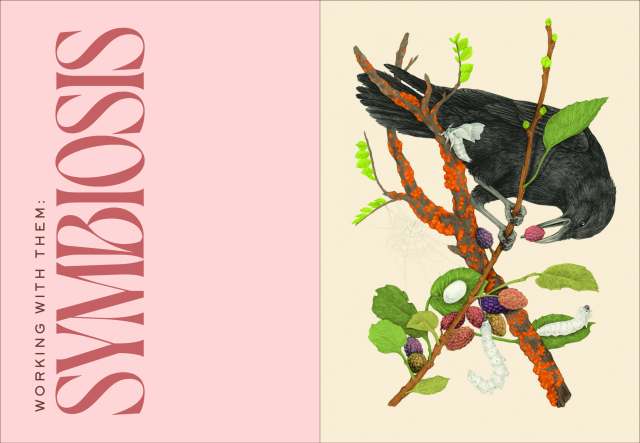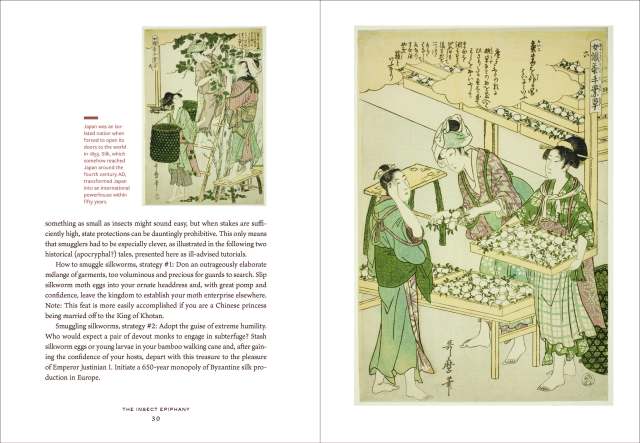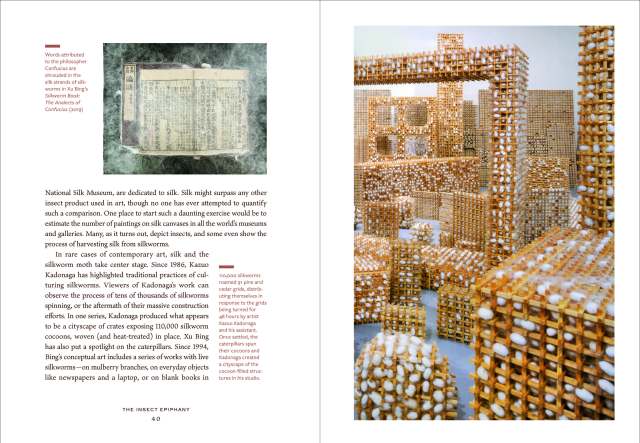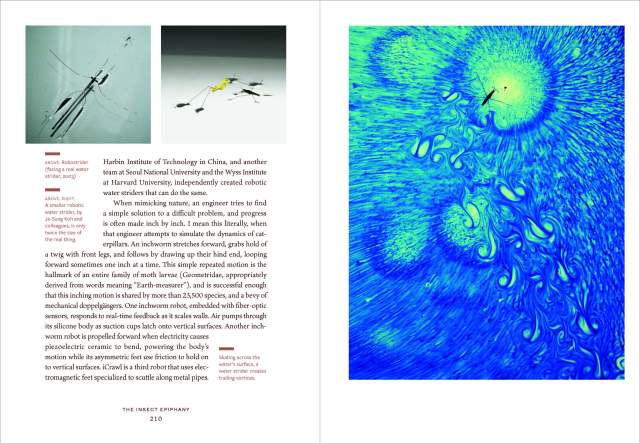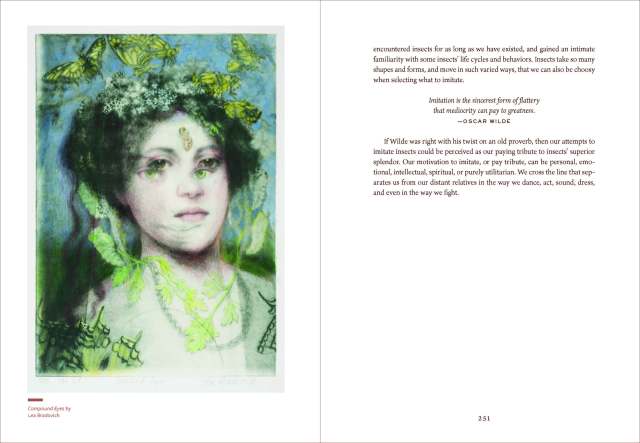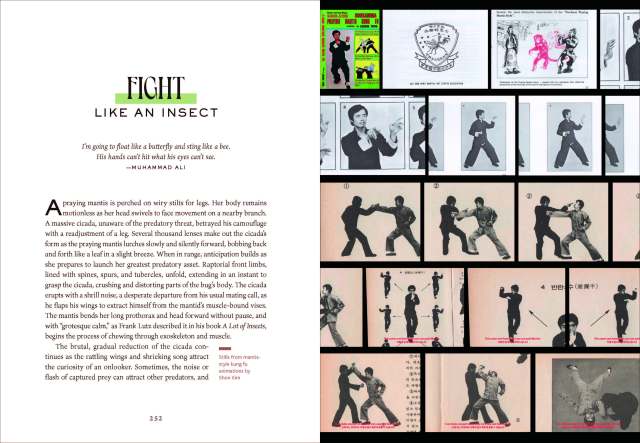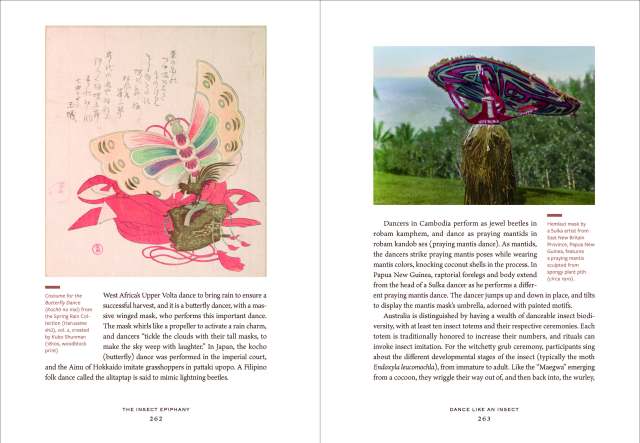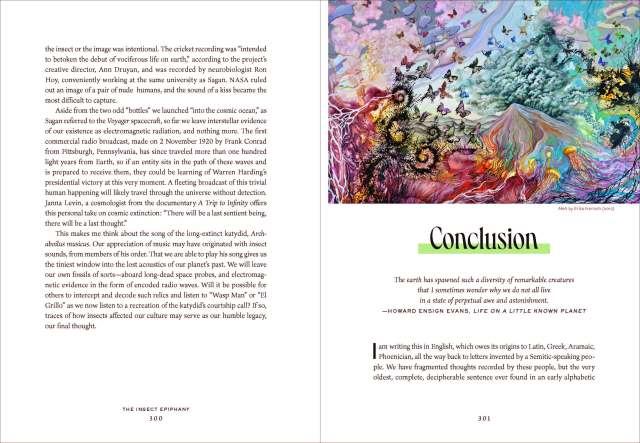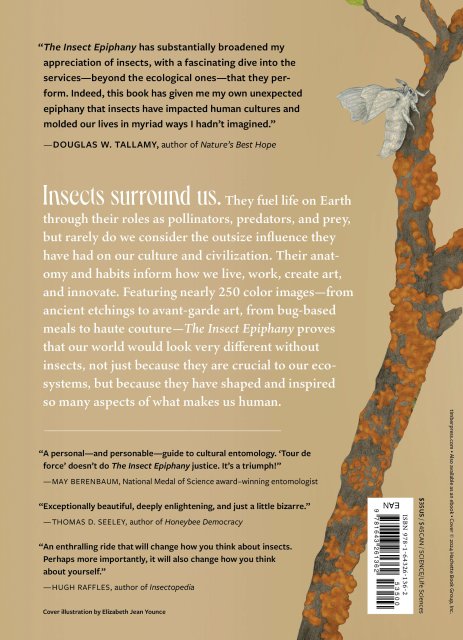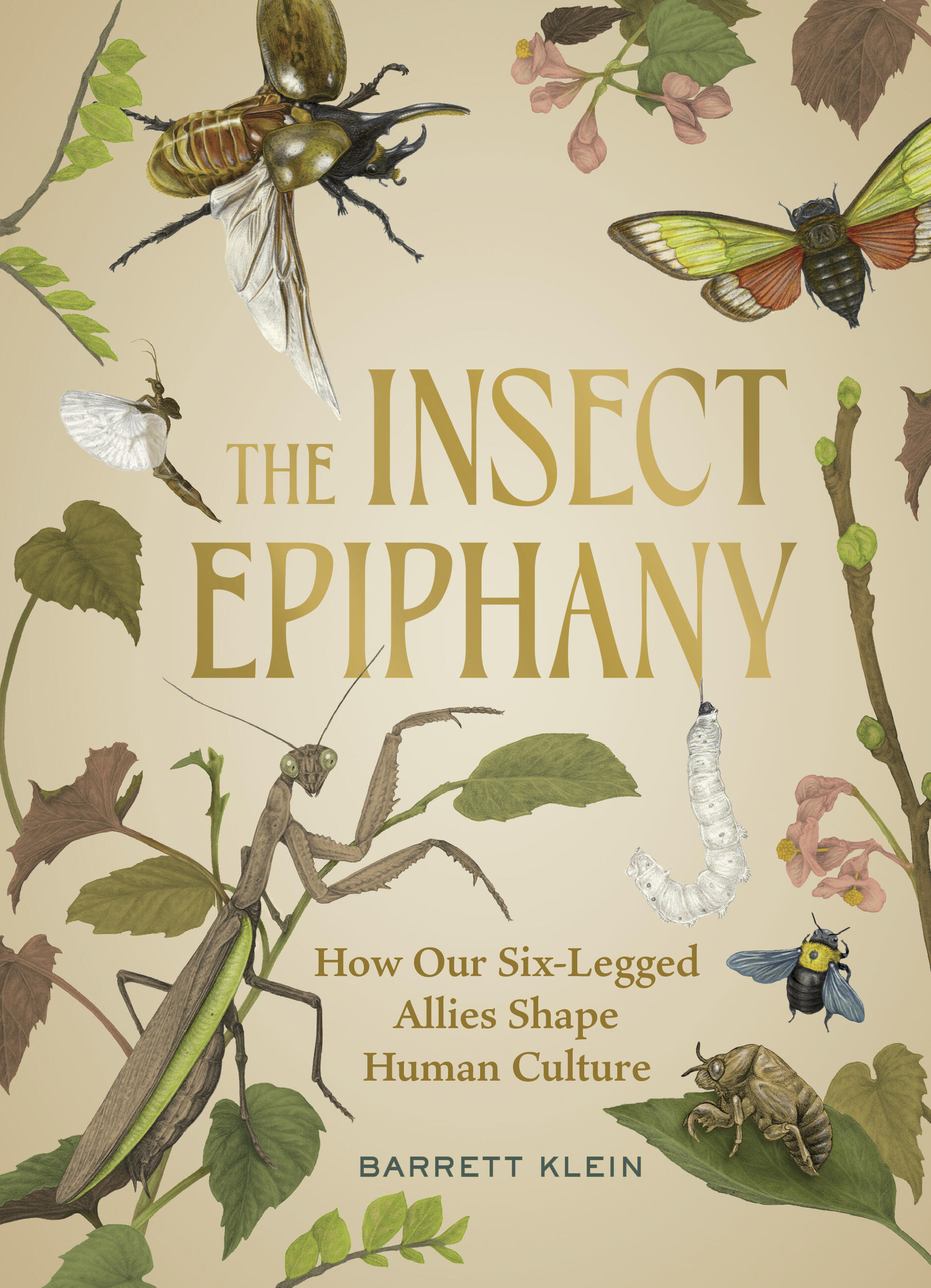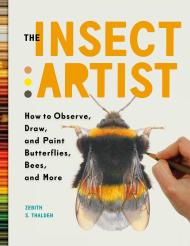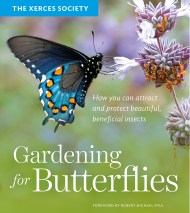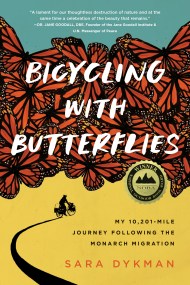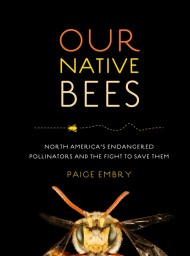
The Insect Epiphany
How Our Six-Legged Allies Shape Human Culture
Listen to an audio sample
Contributors
Formats and Prices
Price
$35.00Price
$45.00 CADFormat
Format:
- Hardcover $35.00 $45.00 CAD
- ebook $4.99 $4.99 CAD
- Audiobook Download (Unabridged) $24.99
Also available from:
From entomologist Barrett Klein comes a buzz-worthy exploration of the many ways insects have affected human society, history, and culture
As heard on Science Friday.
Insects surround us. They fuel life on Earth through their roles as pollinators, predators, and prey, but rarely do we consider the outsize influence they have had on our culture and civilization. Their anatomy and habits inform how we live, work, create art, and innovate. Featuring nearly 250 color images—from ancient etchings to avant-garde art, from bug-based meals to haute couture—The Insect Epiphany proves that our world would look very different without insects, not just because they are crucial to our ecosystems, but because they have shaped and inspired so many aspects of what makes us human.
-
Douglas W. Tallamy, author of Nature’s Best Hope
“The Insect Epiphany has substantially broadened my appreciation of insects, with a fascinating dive into the services—beyond the ecological ones—that they perform. Indeed, this book has given me my own unexpected epiphany that insects have impacted human cultures and molded our lives in myriad ways I hadn’t imagined.”
-
Thomas D. Seeley, author of Honeybee Democracy
“The Insect Epiphany is exceptionally beautiful, deeply enlightening, and just a little bizarre. If you're a stranger to Barrett Klein, entomologist and artist extraordinaire, then this book is an ideal way to make his acquaintance and enjoy his special knowledge.”
-
Hugh Raffles, author of Insectopedia
"Playful, erudite, endlessly imaginative, and written with exacting clarity, The Insect Epiphany is overflowing with fascinating information and deep scholarly knowledge. An enthralling ride, it will change how you think about insects and, perhaps more importantly, it will also change how you think about yourself."
-
May Berenbaum, National Medal of Science award–winning entomologist
“A personal—and personable—guide to cultural entomology. ‘Tour de force’ doesn’t do The Insect Epiphany justice. It’s a triumph!”
-
Booklist
“Adorned with vivid illustrations and artwork, this distinctive work of cultural entomology will likely leave readers itching to learn more.”
-
The Revelator
“Now, this is the way to write a conservation book. Klein, an entomologist, illustrates not just how the planet needs its bugs but how much humans have appreciated their very insect-ness over the millennia and expressed that in art, industry, technology, fashion, and our core cultural systems. Along the way he delivers a vital history that paves the way for the future.”
-
Science Magazine
“For other folks who have spent their careers studying insects, every patch of green on Earth is a kind of secret garden filled with entomological wonders. Klein shares this garden with the world with his titular Insect Epiphany.”
-
The Good Men Project
“Now, this is the way to write a conservation book. Klein, an entomologist, illustrates not just how the planet needs its bugs but how much humans have appreciated their very insect-ness over the millennia and expressed that in art, industry, technology, fashion, and our core cultural systems. Along the way he delivers a vital history that paves the way for the future.”
- On Sale
- Oct 15, 2024
- Page Count
- 368 pages
- Publisher
- Timber Press
- ISBN-13
- 9781643261362
Newsletter Signup
By clicking ‘Sign Up,’ I acknowledge that I have read and agree to Hachette Book Group’s Privacy Policy and Terms of Use

